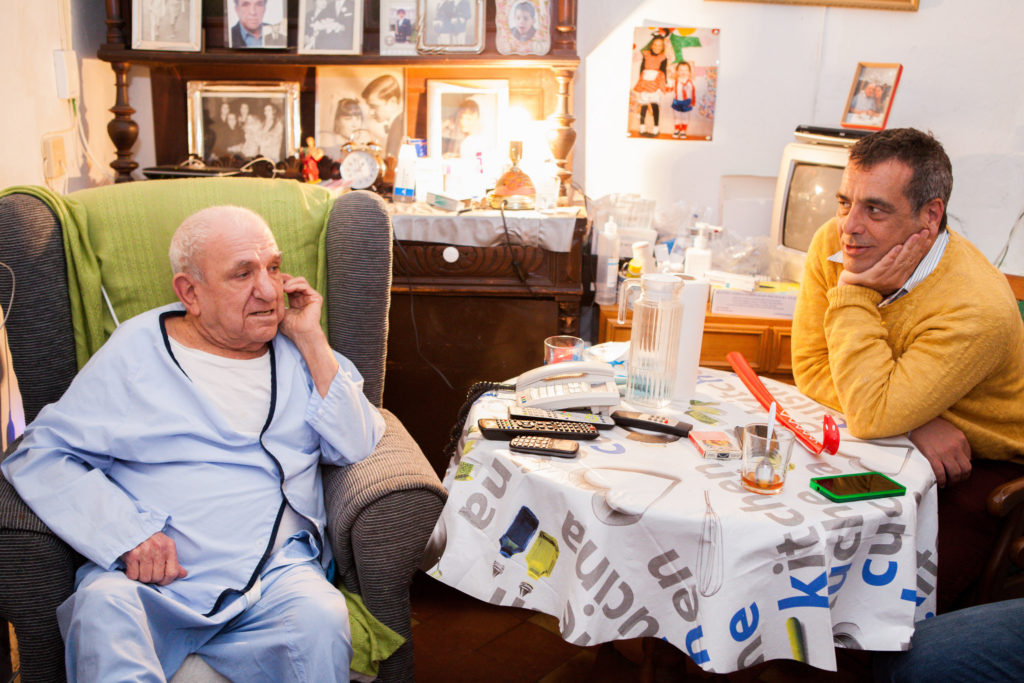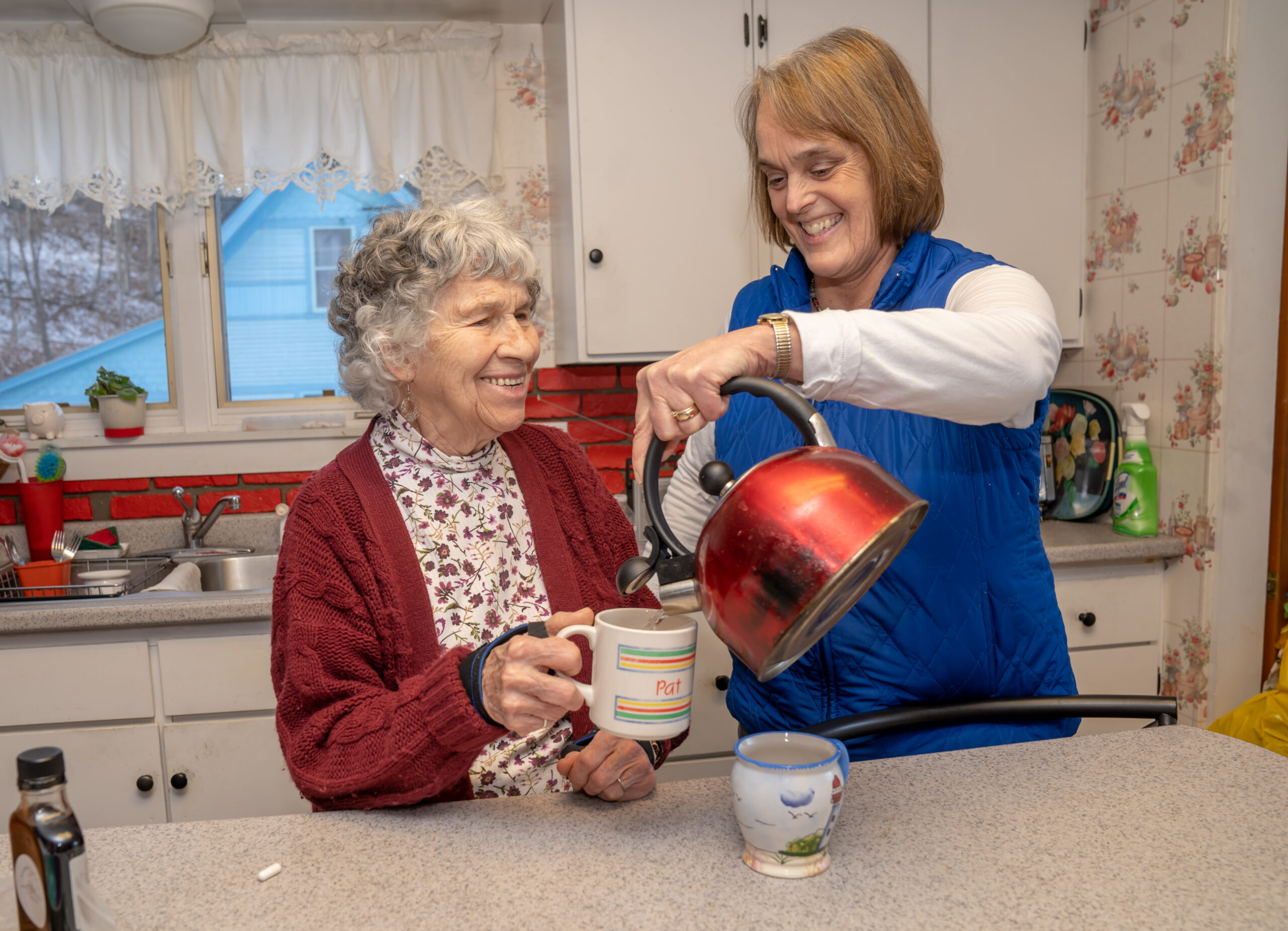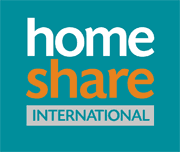Homeshare is a simple but brilliant idea – it is the exchange of services : housing for help in the home. Homesharing enables two unrelated people to share a home and their lives for their mutual benefit. Companionship and mutual support are at the heart of homesharing – not financial gain. A homesharer provides support and companionship to a householder in exchange for free or low-cost accommodation.
Homesharing fits well with the policy agendas of many different countries, since it:
- supports older people in their own homes for longer, delaying or preventing the need for costly residential care
- enables hospital discharge and prevents ‘bed-blocking’
- provides low-cost accommodation for students, primarily in mainland Europe, where universities have increased their intake faster than their student housing programmes
- provides affordable housing for key workers in expensive cities like London, UK
- makes better use of housing stock – many older householders are ‘under-occupying’ their homes
- contributes to solidarity between the generations (for example see the Centre for Intergenerational Practice)
- contributes to strengthening local communities
- homesharing can be very cost effective in meeting the needs of older people and addressing housing shortages

Homeshare can bring two different generations together and support people with significant disabilities. These homesharers were matched by the Solidarios programme in Madrid, Spain. Photo courtesy of Solidarios and Elena Chebanova
Despite the fact that homesharing meets so many policy aims, public authorities have been slow to adopt it. Some programmes are funded by government, for example in Australia and Korea, but others struggle with little or no public financial backing. In part this may be policy makers’ lack of awareness but another factor may be the perceived risk of homesharing. In the UK for example, policy makers are wary of enabling strangers to move in with vulnerable older people, even though there is no single documented case of abuse taking place.
The cost of running homeshare programmes may be another factor that limits the spread of the idea, though there is ample evidence that homesharing can be very cost effective in meeting the needs of older people.
Governments are gradually implementing a variety of measures that support the homeshare concept.
Canada
Bill 69: Golden Girls Act - Ontario 2019
Bill 69, Golden Girls Act, 2019 – Legislative Assembly of Ontario (ola.org) notes that “Local municipalities should not deter seniors from choosing affordable housing options and should recognize that unrelated seniors living together can reap significant health, economic and social benefits. It is desireable to provide clarity to municipalities that the Planning Act should be interpreted in a way that encourages and permits home sharing by unrelated seniors as a housing solution.”
“Seniors” is defined as aged 55+.
Ireland
Rent a Room
The rent-a-room relief lets you earn up to €14,000 per year tax-free if you rent out a room (or rooms) in your home to private tenants. A self-contained unit, such as a basement flat or a converted garage attached to your home, can qualify for this relief…
…to qualify for rent-a room relief, your home must be located in the State and you must occupy it as your sole residence during the year of assessment.
Living Alone Allowance
- Are aged or infirm and have a friend or relative to stay for security reasons at night-time only. The friend or relative must not contribute to the household financially.
- Live alone during the day but stay with relatives or friends at night or if you live alone during the week but have a relative to stay at the weekend (the living alone condition is satisfied as long as the relative has a permanent home address elsewhere).
- Live alone but occasionally take in paying guests (for example, during a local festival). However, if you run a bed and breakfast business (even for part of the year) you will not qualify.
- Allow a person(s) who is not an employee or not an immediate family member to stay in your home rent free and you would be living alone, but for that person.
- Are renting for at least 28 consecutive days to a person(s) who is not an employee or not an immediate family member and you would be living alone, but for that person.
- Are renting for at least 28 consecutive days to a person(s) from Ukraine covered by the Temporary Protection Directive and you would be living alone, but for that person.

U.S.A.
U.S. Department of Housing and Urban Development (HUD)
 Assessments of Shared Housing in the United States
Assessments of Shared Housing in the United States
HUD User publishes Insights into Housing and Community Development, a series of research papers examining a single topic or question in a concise format. Insights papers also offer recommendations relevant to policymakers and practitioners.
The June 2021 Insights paper Assessments of Shared Housing in the United States discusses various shared housing models, provides a brief history of shared housing in the U.S., describes the models and challenges of home sharing and co-living, and offers examples of federal and state initiatives in shared housing. The paper determines that the formal and informal shared housing arrangements across the U.S. offer a range of benefits to residents, such as reduced social isolation, access to areas of greater opportunity, and flexibility in housing stock during times when supply is tight. The researchers find that between 2000 and 2019 the number of households sharing housing has modestly increased, with home sharing and co-living being the most common arrangements.
Home sharing helps homeowners lower their housing costs while also providing an affordable housing option to low-income families and underserved households.
Housing constructed and designed specifically for co-living has become a rapidly growing sector of real estate markets and provides a convenient way for young professionals to move to a new city and live in communities with access to amenities and employment.
Visit HUD User’s Insights page to learn more about shared housing and other housing and community development issues.
Please email us if you are aware of other public policy items.
